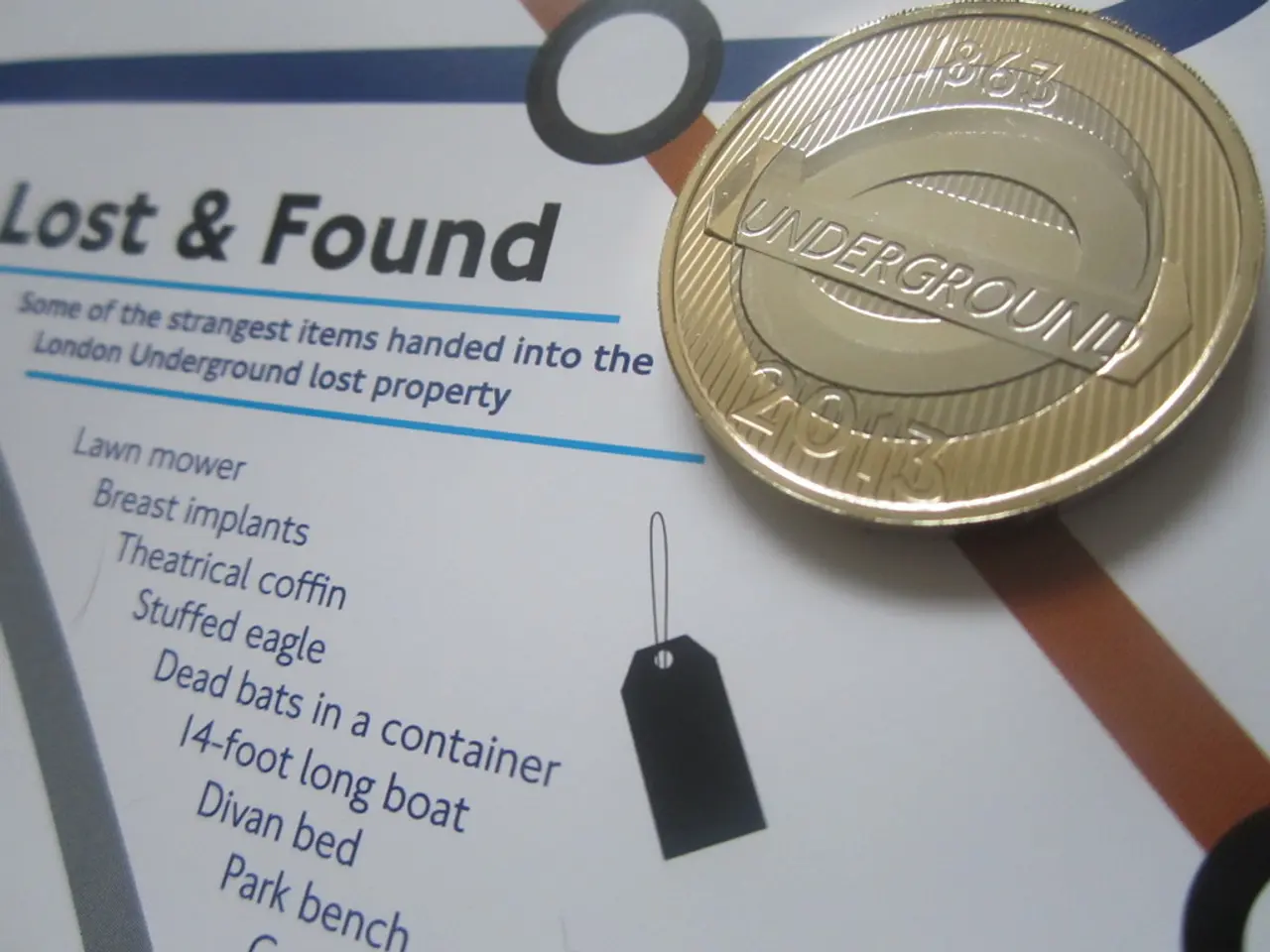Discussion between JP Morgan and SEC over capital market activities utilizing public blockchain technology
In a significant stride towards the integration of blockchain technology in traditional finance, JP Morgan, a leading global bank, is making waves with its tokenized collateral strategy. The strategy, facilitated through its blockchain subsidiary, Kinexys, is reshaping the landscape of asset management and collateral requirements in several ways.
1. **Increased Asset Liquidity**: By tokenizing traditional assets such as money market fund shares and other securities, Kinexys enables the efficient use of these assets as collateral. This reduces settlement friction and increases their mobility, making assets more accessible and liquid. This liquidity can potentially open up new investment opportunities for a broader range of investors. The recent pilot to tokenize carbon credits further demonstrates how blockchain can enhance the verification and trading of environmental assets, providing transparency and traceability benefits that attract traditional finance companies interested in ESG investing.
2. **DeFi-TradFi Convergence**: JP Morgan's initiatives, including the development of deposit tokens like JPMD, act as a bridge between decentralized finance (DeFi) and traditional finance (TradFi). This convergence is expected to drive other banking institutions to explore similar technologies, which could boost competition and innovation in financial services. By integrating DeFi elements into traditional markets, these platforms can enhance trust and reliability through cryptographic proofs and smart contracts.
3. **Regulatory and Market Trust**: The use of smart contracts by Kinexys creates immutable audit trails, enhances market transparency, and prevents double spending, which are crucial factors for building trust among traditional finance companies. This level of transparency and security can encourage more traditional financial institutions to adopt blockchain solutions.
4. **Institutional Scale and Adoption**: Kinexys' platform facilitates intraday repo transactions and has processed over $300 billion in such transactions, demonstrating its capability to handle institutional-scale operations. This scale can influence other traditional finance companies to consider blockchain solutions for their asset management and collateral needs.
The Securities and Exchange Commission (SEC) recently held a meeting with JP Morgan, focusing on cryptocurrency issues and tokenization matters. Scott Lucas, JP Morgan's Head of Markets Digital Assets since early 2021, led the meeting. He serves on the boards of blockchain firms Ownera and HQLAχ, another digital collateral firm. JP Morgan's tokenized collateral solution, currently operational on its permissioned blockchain, Kinexys, also includes an intraday repo solution called Digital Financing and a bond issuance platform called Digital Debt Services.
Future regulatory engagement was another key point in JP Morgan's meeting agenda with the SEC. The Chicago Mercantile Exchange (CME) is also participating in the tokenized collateral space, further indicating the growing interest in this area. Tokenized collateral aims to address market risks by allowing institutions to transfer tokenized securities directly to meet margin requirements without selling underlying assets, potentially revolutionizing the way traditional finance operates.
In conclusion, JP Morgan's tokenized collateral strategy is driving blockchain adoption among traditional finance companies by offering increased asset liquidity, enhancing trust through transparent and secure transactions, and demonstrating the potential for DeFi and TradFi convergence. The bank's initiatives are expected to inspire other traditional finance companies to explore similar technologies, fostering a more innovative and competitive financial services sector.
- JP Morgan's tokenized collateral strategy, facilitated through its blockchain subsidiary Kinexys, uses smart contracts to tokenize assets such as money market fund shares, enhancing their accessibility and liquidity.
- The development of deposit tokens like JPMD by JP Morgan forms a bridge between decentralized finance (DeFi) and traditional finance (TradFi), encouraging other banking institutions to explore similar technologies for increased competition and innovation.
- Tokenization on Kinexys' platform creates immutable audit trails, boosting transparency and improving trust among traditional finance companies, potentially leading to increased adoption of blockchain solutions.
- JP Morgan's tokenized collateral solution has shown its capability to handle institutional-scale operations, processing over $300 billion in intraday repo transactions.
- JP Morgan's tokenized collateral strategy, alongside regulatory discussions with the SEC and the CME's participation in the tokenized collateral space, indicates a growing interest in this area, potentially revolutionizing traditional finance operations.




